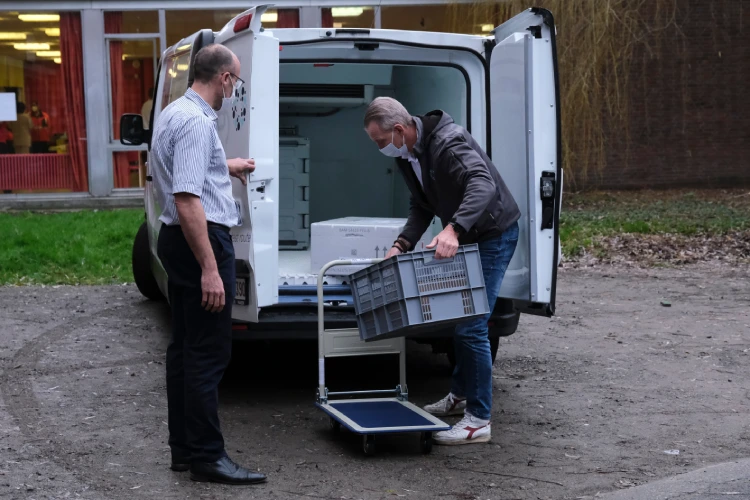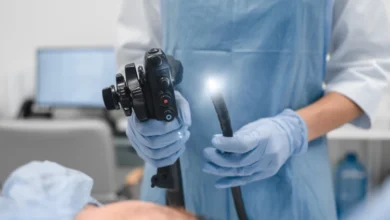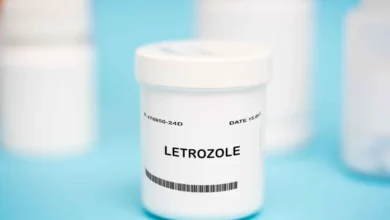Stablepharma Tests Fridge-Free Vaccine That Could Help Cut Global Wastage
First Clinical Trial Begins for Room-Temperature Tetanus-Diphtheria Vaccine

Stablepharma has initiated its first human trial of SPVX02, a thermostable fridge-free vaccine for tetanus-diphtheria designed to remain potent without refrigeration. The trial is taking place at the NIHR Clinical Research Facility at University Hospital Southampton, with the first participant dosed earlier this month. The Phase I study will run through the third quarter of 2025, with results expected by the end of the year.
SPVX02 is formulated using the company’s proprietary StablevaX™ technology, which enables existing vaccines to remain stable at room temperature. In preclinical tests, the vaccine retained its efficacy after undergoing three cycles of temperature fluctuations between -20°C and 40°C. This kind of thermal resilience is rare among biologics and critical to improving vaccine access in low-resource or remote settings.
Tackling Vaccine Waste Through Thermostability

This fridge-free vaccine aims to address a well-documented challenge in global health: vaccine loss due to cold chain failures. According to the World Health Organization, around 50% of vaccines are wasted annually, often because they are compromised during transport or storage. Most conventional vaccines require strict temperature control, typically between 2°C and 8°C. Some even demand sub-zero storage.
SPVX02 has an 18-month shelf life at room temperature, which not only reduces the logistical burden but also minimizes dependence on refrigeration infrastructure. This has significant implications for vaccination campaigns in areas with unreliable electricity or limited refrigeration capacity.
Stablepharma’s innovation could help reduce these inefficiencies, making immunization programs more resilient, particularly during emergencies or in regions with poor access to cold-chain networks.
Government and EU-Backed Research
The current trial is funded through a combination of UK government support and European Union research initiatives. Funding support for the project has come from UK-based innovation bodies, including Innovate UK and NIHR, which back promising health technologies.
In February 2025, the company was awarded €2.5 million from the European Innovation Council Accelerator, following an earlier €50,000 grant from the Horizon Europe program in 2021.
These grants are part of broader efforts to advance vaccine innovation and improve preparedness for future health emergencies.
Professor Saul Faust, Director of the NIHR Southampton Clinical Research Facility, is leading the trial. He emphasized the significance of testing thermostable vaccines in human subjects, noting that it marks a turning point in vaccine delivery research.
Expanding the Platform Beyond SPVX02
Stablepharma views SPVX02 as just the beginning. The company has identified up to 60 existing vaccines that could be reformulated using the StablevaX™ platform. These include vaccines that are currently restricted by cold-chain requirements, such as those for polio, hepatitis, and measles.
Chief Development Officer Dr Karen O’Hanlon stated that SPVX02 demonstrates how thermostable vaccines can be produced at scale under Good Manufacturing Practice (GMP) conditions, paving the way for mass distribution without relying on refrigeration.
Should the trial outcomes remain positive, the company plans to launch SPVX02 commercially by 2027. The company believes that thermostable vaccines could play a key role in improving global vaccine coverage and reducing barriers to access.
Implications for Global Health
Fridge-free vaccines offer a practical solution to a persistent problem in immunization delivery. Their ability to remain effective outside a controlled environment could transform how vaccines are transported, stored, and administered—especially in remote, conflict-affected, or resource-poor regions.
If successful, the SPVX02 trial could validate a scalable model that significantly reduces vaccine spoilage and extends immunization reach.
As the trial progresses, researchers and health policymakers worldwide will be watching closely. The outcome may not only affect future vaccine logistics but also inform the next generation of biologic formulation technologies.
[Source]








